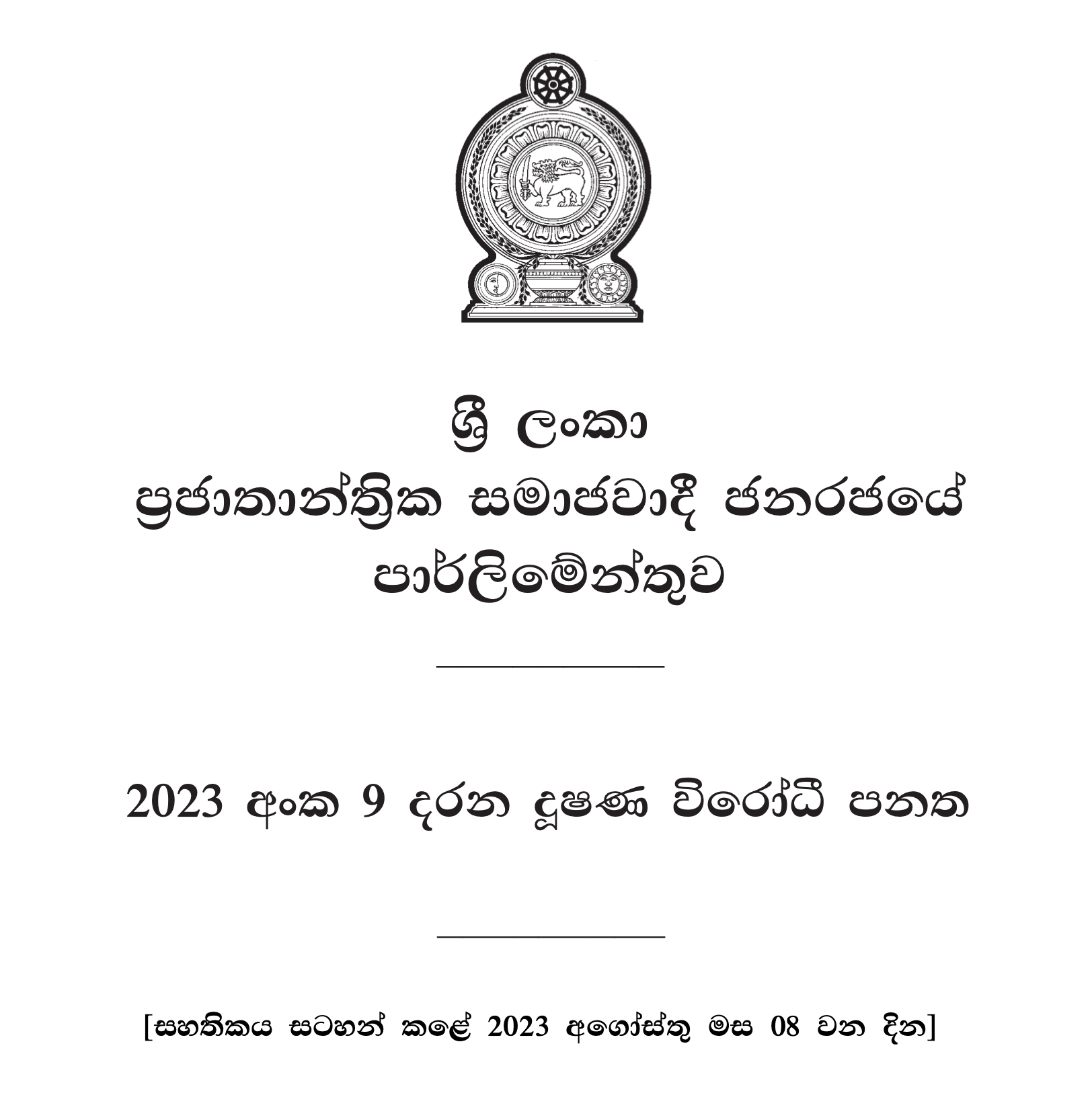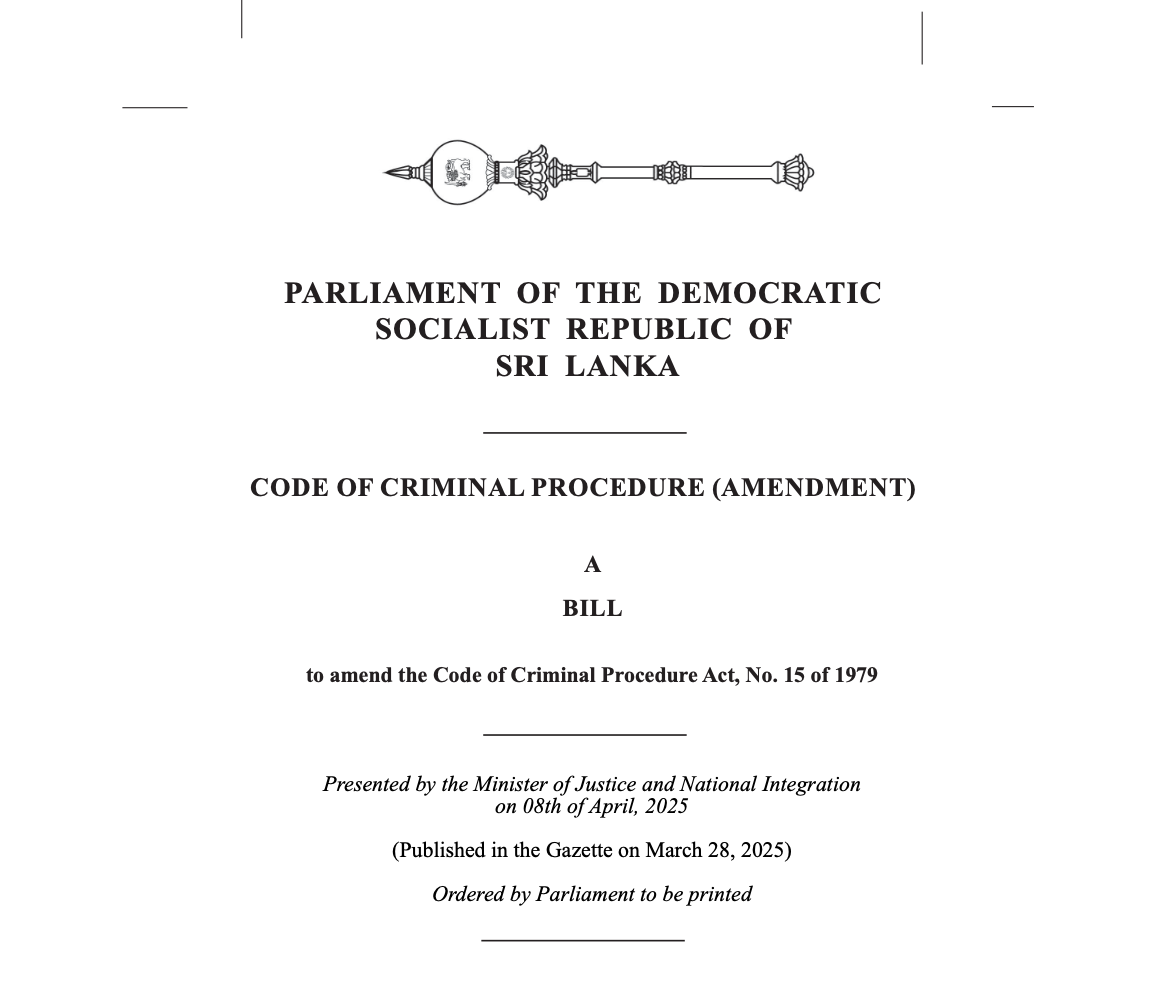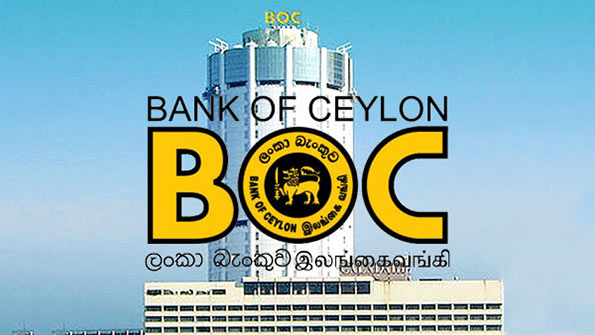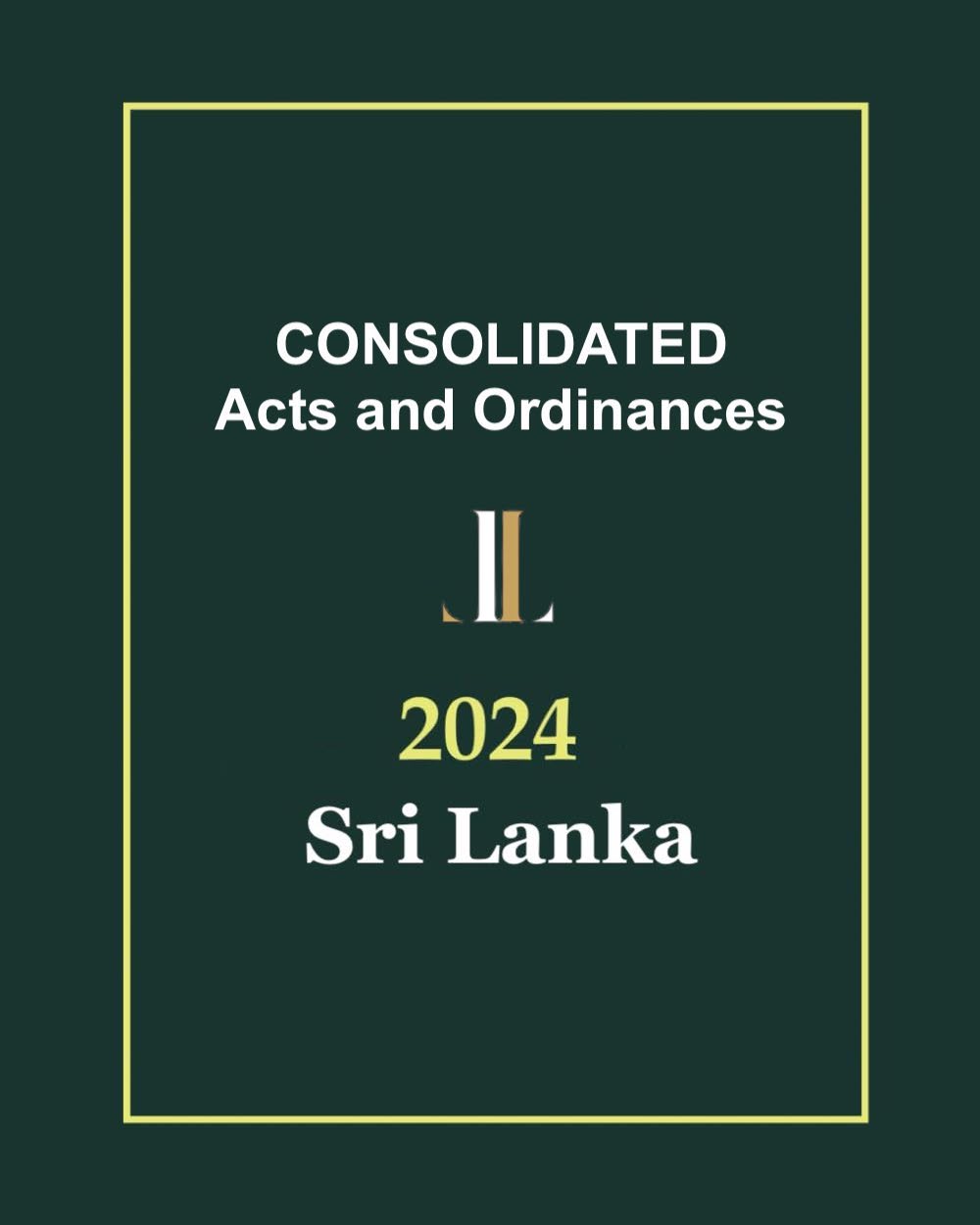-
දූෂණ විරෝධී පනතේ අදාළත්වය සහ ආණ්ඩුක්රම ව්යවස්ථාවේ 13(6) වගන්තිය

ආණ්ඩුක්රම ව්යවස්ථාවේ 13(6) වගන්තිය ශ්රී ලංකාවේ අපරාධ නීතියේ මූලික මූලධර්මයක් වන අතර, එය අතීතයට බලපැවැත්වෙන අපරාධ නීති සහ වැඩි කළ දඬුවම්වලින් පුරවැසියන් ආරක්ෂා කරයි. 2023 අංක 9 දරන දූෂණ විරෝධී පනත නව නීති රාමුවක් හඳුන්වා දුන්නද, එහි විධිවිධාන ක්රියාත්මක වන්නේ පනත බලපැවැත්වූ දින සිට ඉදිරියට පමණි. පනත ක්රියාත්මක වීමට පෙර සිදු වූ දූෂණ හෝ ඊට
-
Former Minister and Sathosa Chairman sentenced amid Strict Constitutional Safeguards under the Article 13(6) of the Constitution of Sri Lanka

Colombo, June 1, 2025 — In a landmark judgment delivered by the Colombo High Court this week, former Sports Minister Mahindananda Aluthgamage and former Sathosa Chairman Nalin Fernando were sentenced to 20 and 25 years of rigorous imprisonment, respectively despite Strict Constitutional Safeguards under the Article 13(6) of the Constitution of Sri Lanka explicitly prohibiting retroactive criminal
-
Code of Criminal Procedure (Amendment) Bill – 2025

Overview: The “Code of Criminal Procedure (Amendment) Bill – 2025” introduced by the Minister of Justice and National Integration seeks to modernize and streamline criminal procedures in Sri Lanka. It primarily introduces mechanisms for remote participation in court proceedings and clarifies the circumstances under which a suspect’s or accused’s physical presence in court may be dispensed
-
RTI Commission Orders Full Disclosure from Bank of Ceylon Over Alleged Misuse of Public Funds

In a landmark ruling, the Right to Information (RTI) Commission of Sri Lanka has directed the Bank of Ceylon (BOC) to release a comprehensive set of documents relating to financial transactions, loans, tender procedures, and contracts involving the Informatics Group and the former Chairman of the bank, Mr. Gamini Wickramasinghe, spanning the years 2007 to
-
K.G.P.M. Nirmalatha v. Rajarata Sanwardana Bankuwa & Others [SC Appeal No. 168/2015]
![K.G.P.M. Nirmalatha v. Rajarata Sanwardana Bankuwa & Others [SC Appeal No. 168/2015]](https://lankalaw.net/wp-content/uploads/2025/03/1645691897477.jpeg)
This case sets a precedent that when an entity is abolished and replaced by a new entity through legislative action, employment contracts do not automatically transfer unless explicitly stated in the law. Employees must either accept new contracts or seek compensation as provided under the governing statute. The decision reinforces the principle that statutory provisions
-
New Proceeds of Crime Bill may raise constitutional concerns regarding the right to property

The Government of Sri Lanka’s decision to table the Proceeds of Crimes Bill reflects a strategic move to strengthen the country’s legal and institutional framework against financial crimes, corruption, and money laundering. This legislative initiative aligns with global anti-money laundering standards and seeks to enhance asset recovery mechanisms by empowering authorities to trace, seize, and forfeit illicitly acquired property. However, while the Bill is
-
Imposition of Stamp Duty in Sri Lanka

Stamp duty ordinance was enacted in Sri Lanka in 1909. Thereafter in 1982 Parliament enacted No 43 of Stamp Duty Act to provide for the imposition of stamp duty on instruments and documents and for matters connected therewith or incidental thereto. Stamp Duties on immovable property and certain movable properties were devolved to the Provincial Councils
-
Acts and Ordinances (Consolidated) 2024

Acts and Ordinances of Sri Lanka revised and consolidated with all amendments up to 2024 ensures legal clarity, accessibility, and efficiency for lawmakers, legal professionals, businesses, and the public. It eliminates ambiguity caused by scattered amendments, reducing the risk of misinterpretation and outdated references. Find below the Key Acts and Ordinances revised and consolidated
-
Deshabandu Tennakoon v. Hon. B. A. Aruna Indrajith Buddhadasa & Others (CA Writ Application 168/25)

1. Introduction This judicial review examines the decision of the Court of Appeal of Sri Lanka in Deshabandu Tennakoon v. Hon. B. A. Aruna Indrajith Buddhadasa & Others (CA Writ Application 168/25), where the Petitioner, the Inspector General of Police (IGP), sought relief against an arrest order issued by the Magistrate’s Court of Matara. The case involves
-
Supreme Court Rules in Favor of Sri Lanka Savings Bank in Landmark Banking Dispute

1. Introduction The Supreme Court of Sri Lanka has delivered a decisive judgment in the case between Sri Lanka Savings Bank Limited (Plaintiff-Appellant) and Habib Bank AG Zurich (Defendant-Respondent), with Hatton National Bank Limited as the Substituted Defendant-Respondent. The case, registered as S.C. (CHC) Appeal No. 22/2010, arose from a banking dispute concerning the non-release of a deposit by the defendant bank.
-
Judicial Review of Child Abduction Case: CA (CPA) 162/2022

Case Title: CA (CPA) Application No: 162/2022Court: Court of Appeal of the Democratic Socialist Republic of Sri LankaHigh Court Case No: HC/SPL/20/2018Date of Decision: 03.03.2025Presiding Judges: S. U. B. Karalliyadde, J., Mayadunne Corea, J. Introduction This judicial review provides an in-depth analysis of the revision application filed against the order dated 08.12.2022 of the Provincial High Court of Western Province,
-
Supreme Court Appeal No. 169/2015: Constructive Trust and Property Ownership Dispute

Introduction This report examines the Supreme Court of Sri Lanka case SC Appeal No. 169/2015, which involves a property dispute between Malagodage Iranganie (Plaintiff) and Malagodage Thilakeratne (1st Defendant) concerning the alleged existence of a constructive trust. The case initially went through the District Court and the Civil Appellate High Court before reaching the Supreme Court
-
SC Appeal No. 166/2014: Enforcement of Performance Bonds in Sri Lanka

Introduction This report analyzes the Supreme Court of Sri Lanka case SC Appeal No. 166/2014, which arose from a dispute between K.D.A. Hettiarachchi (Plaintiff) and Ceylinco Insurance Company Limited (Defendant) regarding the enforcement of a performance bond. The case progressed through the District Court and the High Court before reaching the Supreme Court, which delivered its
-
Judicial Review of Land Lease Cancellations in Case CA/WRIT/146/2018

Introduction The case CA/WRIT/146/2018 was adjudicated in the Court of Appeal of the Democratic Socialist Republic of Sri Lanka. The petitioners sought mandates in the nature of Writs of Certiorari, Prohibition, and Mandamus under Article 140 of the Constitution. The petitioners included Forest Glen Hotel and Spa (Pvt) Ltd, Elk Plain Farm (Pvt) Ltd, and their
-
Nagananda Kodituwakku v. Director General of Customs & Others

Court: Court of Appeal of the Democratic Socialist Republic of Sri LankaCase Number: CA [Writ] Application No: 315/2018Judges: Dhammika Ganepola, J. and Damith Thotawatta, J.Decision Date: 14th February 2025 Introduction This report analyzes the case filed by Nagananda Kodituwakku in the Court of Appeal of Sri Lanka. The petitioner sought writs of Certiorari and Mandamus under Article 140 of the Constitution in the

Legal News
